31 October 2007
21 October 2007
The Neighborhood

Posted by
Dane
at
10:27 AM
0
comments
![]()
Labels: Chiang Mai, living, Thailand
16 October 2007
About Oil
 Since the war in Iraq began, oh so many years ago, I have often heard it asserted that this was, ultimately, a war about oil. I assumed that meant that this was an imperialist grab for Iraq’s oil resources, which, considering how things have turned out thus far, was a remarkably stupid move.
Since the war in Iraq began, oh so many years ago, I have often heard it asserted that this was, ultimately, a war about oil. I assumed that meant that this was an imperialist grab for Iraq’s oil resources, which, considering how things have turned out thus far, was a remarkably stupid move.The other day I was talking to a friend, a technical consultant, in the oil business, and I asked him, about as incoherently as possible, what he thought of peak oil. He told me that throughout his career he had been spec'ing and subsequently shelving hundreds of small projects that were just too expensive to do—they all required $80 a barrel oil in order to be profitable. Now that prices have reached $80 a barrel, all those little projects are coming off the shelf. So yes, he did believe in peak oil, and watching all those expensive projects finally pop into existence was proof enough for him. He believes we will always have a petrochemical industry, but that soon we’ll be hitting ourselves over he head for doing stupid things like turning natural gas into fertilizer. I thought that was a good point since natural gas becomes irrecoverable after being turned into corn and algae.
Later on, the next day or so, I was listening to some of the dire predictions about the consequences of a war with Iran, including $100 a barrel oil. That lead me to the following, rather sinister conclusion: what if the war in Iraq, rather than being a bungled attempt to appropriate Iraqi oil, is a actually a brilliant scheme to keep some Middle-Eastern oil off the market for a while, raise the price of oil over all, thereby generating revenue to develop projects that would previously have been unprofitable. I’m sure this has occurred to someone somewhere already, and Mark L. could probably tell me exactly why I’m wrong, but the thought seemed novel enough that I thought it worth publishing to my glorious audience of three and a half people.
24 October 2007
True to form, ML knows exactly why I'm wrong. Here's what he has to say:
Dane,
I am glad to see that your blog is back up and running. I also appreciate the "shout out".
I don't know why we went to war with Iraq, but I wish the Bush administration had used oil as a justification. I think Bush had a strong desire to invade Iraq, so he looked for intelligence that would enable him to realize his dream. I guess he sort of data mined intelligence to support a war. Data mining in research generally produces flawed results and Bush showed that data mining in foreign policy produces equally erroneous results. I know I voted for George Bush and before we invaded Iraq I told everyone, probably you as well, we should just invade Iraq now because Bush is going to do it anyways. I think I was right.
There is a great justification for the invasion had the war been about oil (Al Greenspan revealed the justification in his new book). Before the invasion, Saddam was trying to control of the Strait of Hormuz and as a consequence of that, a huge portion of the world oil market. About 20% of the world's oil supply is shipped through the straight and had Saddam stopped shipments, the price would have most definitely sky rocketed. People around the world would suffer extreme economic and physical hardships. Can you imagine the world-wide hardships created by another depression in the United States? I know the atrocities of the war in Iraq are absolutely deplorable, but the alternative is far worse.
On as side note, I really believe the diversification and interconnection of the US and world economies make the US economy some what depression proof to anything but a large and sustained spike in energy prices, specifically crude oil.
I disagree with any assertion that the Iraq war is about stealing natural resources. Most undeveloped countries have strict production sharing agreements with large oil corporations that are very favorable to the undeveloped countries. Oil companies almost act as consultants and get a percent of the revenues from the production. Without the oil companies, the undeveloped nations would never be able to realize the value out of their reserve base that is technically feasible because they lack the expertise. Venezuela is a great example of why undeveloped nations need large oil companies. Production in Venezuela has dropped off significantly over the past several years as Chavez has moved to nationalize all oil and gas assets. Venezuela might be getting 100% of a 100 Million barrels of oil produced a year, but that number will decline and it is much less than the 50% of 500 million barrels of oil they could receive (I made those numbers up. I know production has fallen off to the point where the example applies, but I am not aware of the actual numbers). Any oil contract that a large oil company receives in Iraq will benefit the Iraqis much more then if they tried to develop their own fields. They will never have the expertise of an exxon mobile. It is a good socialist rallying cry, but is highly illogical from an economic stand point.
I also disagree with your notion that the US invaded iraq to remove its oil from the market and artificially inflate prices. You obviously understand the economics of oil. It is a world-wide traded commodity that is priced almost exclusively based on supply and demand. Macro issues in any nation around the world have little bearing on the actual price of oil (ie, inflation in the US does not affect the price of oil like it would the price of a car. Inflation would only affect the price of oil if it affected demand or supply). When politicians speak of charging oil and gas companies a windfall tax because americans feel that oil companies are gouging consumers, I usually get sick to my stomach thinking about how imbecilic the leaders of our nation are. Most of Iraq's oil production was offline at the time of the full scale invasion of Iraq. Iraqi oil entered the market through the UN oil for food program and black market activities, but Iraq did not have the technical expertise required to realize a significant level of production. If anything, the Bush administration believed that oil production in Iraq would increase shortly after the invasion, which would decrease the price of oil. Large oil companies would be able to enter the country, develop their oil fields, and bring production back online. If you recall, many of the budget projects for the Iraq war assumed that the government would be able to fund itself shortly after the war because of increased oil production. Obviously the instability in the country has prevented any effort to increase production.
I do not think the US is motivated by oil to invade Iran. Iran is a destabilizing force in the dead sea region and has caused the death of many innocent iraqis and americans. Iran also has the stated objective of wiping out one of the US' most important allies. Maybe I am drinking bush's Kool-Aide, but I believe any attack on Iran will be based on saving innocent lives.
On a side note, if you are interested in the concept of peak oil, I suggest you check out a book by Matthew Simmons called "Twilight in the Desert".
Simmons is LDS (his family owns Zions Nation Bank) and has an investment bank in Houston named after him.
I enjoyed your post and hope you keep writing. Sorry if my email was a little windy, I didn't have enough time to chop it down.
Regards,
Mark
And I had this to say:
Mark-
I knew you'd set me straight, though I hope I made it clear that the notion that the war is about stealing resources is not my idea, just a distillation of what I think people mean when they say, "yeah, it's all about oil, man." I think Bush took us to Iraq because he imagined it was his destiny, the data mining and phantom WMDs were just to justify what he would do no matter what--like you said.
Do you really think the Strait of Hormuz was actually in that much danger? I can't imagine Iran, the U.A.E, or Oman would have let it happen. And if Saddam had made a military move on the strait, well, we would have had a real reason to attack, an actual objective, like the liberation of Kuwait. The administration's justifications for the war seem to change monthly, and I am left with the suspicion that Bush's willingness to jump in there was an easy cover for something else. Personally I couldn't have been happier if the NeoCons had been right, and Iraq was booming right now. We wouldn't be breathing down Iran's neck, they might not have elected that idiot Ahmadinejad (we had a lot of support there after 9/11, all of which we've squandered in Iraq), we might have had the resources to finish off Al Qaeda properly, and who knows what else. But I suspect that someone was going to be pleased no matter how things worked out, and that even the mess we are in now is working to someone's advantage.
Of course I realize the price of oil has to do with increased demand (China, India, everybody else), but markets also responds to perceived threats to supply, like a destabilized middle-east. Naturally I have no proof, but I can imagine someone devious enough to manipulate the perception of risk. The fact that Iraq was largely off-line only convinces me more, since its continued absence doesn't effect actual supply, while violence in the region reinforces the notion of risk to continued production. And facts are facts, even if none of the major decision makers going into the war were hoping that oil prices would quadruple for the sake of further exploration, the current prices are having that effect, allowing companies to access smaller and deeper deposits.
So now that we are seeing a sustained spike in oil prices (the predicted outcome of Saddam grabbing the Strait of Hormuz, and, by the way, wouldn't a pissed off Iran be more of a threat to that particular bit of geography?), what happens? I see that predictions a year from now have the price at over $100 bbl. Does that mean we get a depression, or will it take more than that? Personally, I welcome high oil prices. It means more r&d will go into alternative, hopefully sustainable, energy sources. And if we stumble a little as a result, well, sucks for us, but I don't think the outcome will be as devastating as we imagine for the rest of the world (J and I will just move to France or something like that). Means of production are much more equitably distributed than they used to be, so I don't think things slowing down a bit would automatically plunge us into a dark age. Some countries might actually benefit from a more hands-off policy on our part, allowing them to trade more with each other, creating a more robust network in the long term.
I'll look for that book when I'm back in the States and earning dollars again (they're better than Baht, even if they are worth less than loonies now). And thanks for making me rethink my groundless assertion. Do you mind if I add the text of your email to that post? I enjoyed it.
How's your art collection coming?
Posted by
Dane
at
11:10 PM
3
comments
![]()
Biciclette

Jami has started her very own craft blog. So far it is full of cute clothes and cute Tien dolls. Enjoy!
Posted by
Dane
at
1:18 AM
0
comments
![]()
06 October 2007
Notes to Lawrence Weiner

Not to give Dave Hickey's libertarian capitalist view of the art world pride of place, here are my notes to a talk by Lawrence Weiner, whose "materialism" we might fairly read as "historical materialism" (hey the guy used to be muscle for NYC labor unions).
*Note for readers sensitive to the F@(< word, I don't use it in this blog, but I don't censor it here.
Lawrence Weiner
notes from talk given 10 October 2001
The world is a very big place, and the only way to get there is to travel.
art is not a metaphor, art is an empirical reality
metaphorical art carries a structure with it not allowing others to have an immediate experience with materials.
ended up in high-schools w/professors victimized by McCarthy
Pollock & Giacometti; much prettier and nicer girls at art museums
get out. if you do alright you don’t have to get a degree (18 yrs old 1st show in San Fran)
language takes away the authority of the artists hand [la pata]
sculptor not conceptualist because he’s a materialist not an idealist
“Art that does not allow itself to be used by another culture is telling you…that ethics is aesthetics…that someone who doesn’t look like your mother is not human.”
site specificity is “kinky”
not just for you and our own set. Change the whole order
“If you’re lucky you won’t fuck up somebody’s day on their way to work. You’ll fuck up their whole life.”
“Does every stone have a place in the sun & do you believe where they tell you it belongs?”
“I can’t stand artists who don’t screw up sometimes, it means they’ve got a system.”
phony’s inherently evil
“I see art as useful as shoes.”
“Oh, but Lawrence, art is for rich people, and women.”
Posted by
Dane
at
3:26 AM
0
comments
![]()
Notes to Dave Hickey

I was looking through a few old sketchbooks the other day and came across these notes I'd taken at lectures given by Dave Hickey. I've actually photocopied these notes for people before, so they've been of some value to me, and others. In transcribing them I've attempted to follow my rather idiosyncratic mode of note taking--arrows, wacky lines and all.
Dallas Museum of Art
16 November 1998
not what causes art, but the consequences
Edward Ruscha “Well, I may be misinterpreting it myself.”
Art & writing—creates the occasion for argument about what [the artwork] might have meant
each era gets the art world it deserves
brings us together so we can sort ourselves out
a-historical culture—no change in A[rt]
revolutionary culture—change in A[rt]
change from an iconic to a representative art
from presence to likeness→stands for absence
embodied meaning—relationship of one sign to things like it
designative meaning—word refers to something unlike it
icon—presence, incarnation
image—likeness
real art world (ours) begins in the 16th century
Salvatore & Guido—Raphael and Michelangelo
Sal: I like the Raphael better
Guido: How can you like it better? Michelangelo is from an old family. Raphael is a street kid.
Discourse begins, has nothing to do with what paintings mean, has to do with economic conditions
Idiosyncratic Styles
↓
commercial competitiveness
distinct styles embody identical info
Sal likes that object best. Meaning is unimportant.
[the artwork is] invested w/ secular grace by the beholder
developed constituencies of people who talked about vaina
before the discourse was before [in front of] the work of art
“Did you see Fra. Angelico’s angels? Totally bitchin’, there’s some stuff there I can steal.”
years later:
“Couldn’t we replace this?”
1 individual person saying “we’ll keep it, we’ll preserve it.”
do we like it? is it worth saving?
that is how works are preserved.
Botticelli stuck in the basement
pre-Raphaelites bring it out
has to do with how works of art are invested with value from without
[works of art] have no intrinsic value
meanings come from without
If we like how something looks, but not what it means,
so we change what it means
oil glaze—to represent the incarnate word
later: look at the realism, [the] divine humanism of [the] Renaissance
look at the push-pull
crack it up with another meaning
paintings have no meaning
What are we arguing about?
we’re arguing about what we belive in, what we desire
communities of desire
object serve as locus of external endowments of value and meaning
Libby [Lumpkin] “we artist historians study how objects look, physicists study objects.
we ascribe meaning”
Warhol:
the interesting thing about the present moment is not that art is becoming more commercial, but that the commercial is becoming more artistic. the president drinks Coke, I drink Coke, if the Queen of England wants a Coke, it has to be a Coke, ‘cause nothing else will do.
democracy of objects
a world of originals infinitely dispersed
hard for Europeans; deeply hierarchical
meaning displaced—irony—vertical repression
we [Americans] can’t do irony,
we do cool
↓
[effortlessly] asserting yourself among peers
being who you are and not making a big deal of it
George Washington—talk about what he did
cool is an idea of incarnation
Monica Vitti—premodern creator
embodying something but not insisting upon it
all these diverse Americans:
people talk about their Ford
discourse of icons that hold the country together & help us sort ourselves out
discourse of value
world he grew up into [there were] Stones people & Beatles people, George Clinton people & Motown people
non-exclusive communities
It didn’t matter what Mick meant or what Lennon meant, it was the discourse that mattered
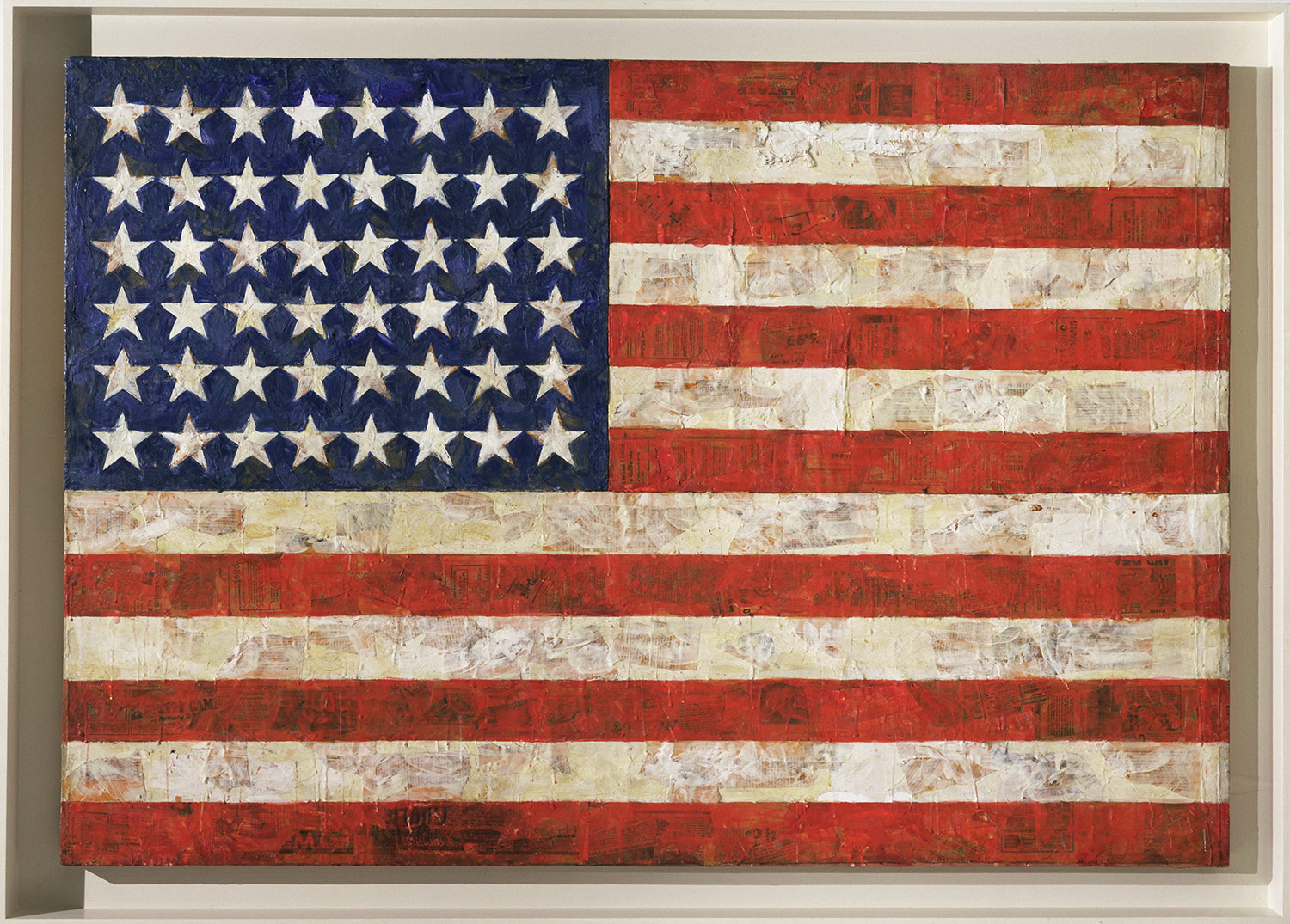 Jasper Johns—first to understand that meaning and value come from with out:
Jasper Johns—first to understand that meaning and value come from with out:
flag—what matters is who salutes it
when the talk stops the object stops being art & becomes an artifact, unless it’s rescued
what’s the difference between The Simpsons and Frank Sellar(?)?
the audience
Whole genres can move from high to low or low to high
“high” art causes writing instead of talk
demonizes writing:
institutional and bureaucratic discourse
metaphysics of presence
painting and sculpture function like a high popular art, like jazz
[there is] art that causes writing and art that causes talk.
writing is there to control the talk.
writing wins because the talk goes away.
you don’t look at Las Meninas and say “wow, I think I’ll go home and write something about it.”
writing→creation→talk→writing→creation
Peter Saul—“It’s hard to keep them ugly. My goal is to come back 50 years after I’m dead and find two people standing in front of my paintings screaming at each other.”
things that survive:
raw information
less privative/reductive survives
reductive force=Donald Judd
[the] first time you like a work of art you Love what it doesn’t do.
This is great; this young woman is not doing anything I hate.
but the stuff that lasts has other qualities.
that which survives is that which allows itself to reallegorization
reductive art doesn’t have the staying power
at first you like it ‘cause it’s fresh (Marylin)
discourse is about “conflict of interest.”
there is no disinterested position from which to see the world.
90% poll watchers and 10% voters
If everyone in the art world works for it disinterestedly, what’s to be bought & sold or done?
Duchamp—artist as liberal artist
greek
arts of the mind versus arts of the hand
Johns [&] Warhol:
carefully aimed at subverting the discourse
If three people unrelated to the artist don’t call it art, I don’t think it is
what—
with the current art world we deal with things with the attention span of AM radio
over heard talking to Vernon Fisher before [the talk]:
“…and what it’s done is it’s created a whole generation of students who think that painting is pinko.”
Blanton 20th Century Series
1 November 2001
Beaux-Arts tradition
↓
“single source” tradition
↓
way of looking at art that disregards the intentions of the artist
↓
artworks: occasions for creating new communities
↓
competing ataliers (subcontractors) unique styles
↓
repeats Guido and Salvatore story
↓
embodiment of values
not talking about content, but composition & XXXX ‘
↓
“this is art”—look at this in the context of all the other art objects you’ve seen
↓
we don’t study objects,
physicists study objects.
we study the way objects look.
[Libby Lumpkin again]
↓
representation of constituency
embodiment of values
↓
Works do not have “content”
they are not containers.
they have a subject in a grammatical sense.
↓
subject vs. attribute
which is which
↓
roots & occasions of abstract art in [the] U.S.
↓
(Philip Fisher, Still the New World)
↓
Europe=specificity
↓
USA=blandness, assimilation, generalization
↓
20s identity politics
↓
Germanic retribalization
tribal feudalism
(tribal cultural identity)
↓
early 20th century
“people could have their own culture & stay the hell out of ours”
↓
reaction [coupled with assimilation]
↓
(generalization & abstraction)
hearths about which the country could gather
(Rothko)
↓
election (constituency)
(we elect abstract presidents, why not abstract art?)
“We will root out the evil ones who hide.”
What the hell? Is this George Bush and the Goblet of Fire?
↓
American artists as redeemed commercial illustrators
synthetic nature of painting
(a Rothko is always a hearth or a landscape)
(de Kooning, pictorial) (Pollock, dance of the artist)
objective correlatives in a public discourse of value
(all about the people in front of the painting, not the ones behind them)
writing & language in nonlinguistic aspects: process, image
a painting with a painting over it with another painting painting it out
occassions for discourse
could you imagine a misinterpretation for these paintings?
David Reed
freedom dramatized and designed.
art presented as expression of community
usually exclusive
(has anyone ever used “community” as a permissive term?)
Abstraction—
statistical generalization of a complex culture
redemptive
what wins never wins for long
the only works that live are those that are defined as beautiful or ugly.
we don’t notice/see what’s in between: the normative
“If we’re not self interested we’re dead, or soon will be.”
“nothing is profoundly what we want it to be”
give absence presence
the idea of the artist is a fiction we create to talk about the works.
Biography is embodiment of critical attitude
“Ed, how can you stand that everybody misinterprets your art?”
“Hey, I may be misinterpreting it myself.”
“the marketplace”
a place where people like art more than money
Mediterranean [culture] vs. Germanic [culture]
Posted by
Dane
at
12:39 AM
0
comments
![]()
Labels: art, critcism, sketchbooks
02 October 2007
Sketchup
Over the last few months poverty, mobility, and the lack of connectivity have conspired to bring about two separate lines of work. I finally had the time to sit down and work on a story I began back in 2004, which I finally finished. In the process, however, it spawned another two or three stories, so at the moment I am about 20,000 words into what will eventually be a 40,000-50,000 word (novel length) collection of related stories, all set in the same time line, but separated by centuries or millennia. I've also had the time to learn how to use Sketchup (sort of, I still go about things stupidly). Once I decided I was going to learn it no matter what, I started drawing up a strawbale house I'd been thinking of for a few years. The way I went about it is embarrassingly clumsy, but worth it to see where I started.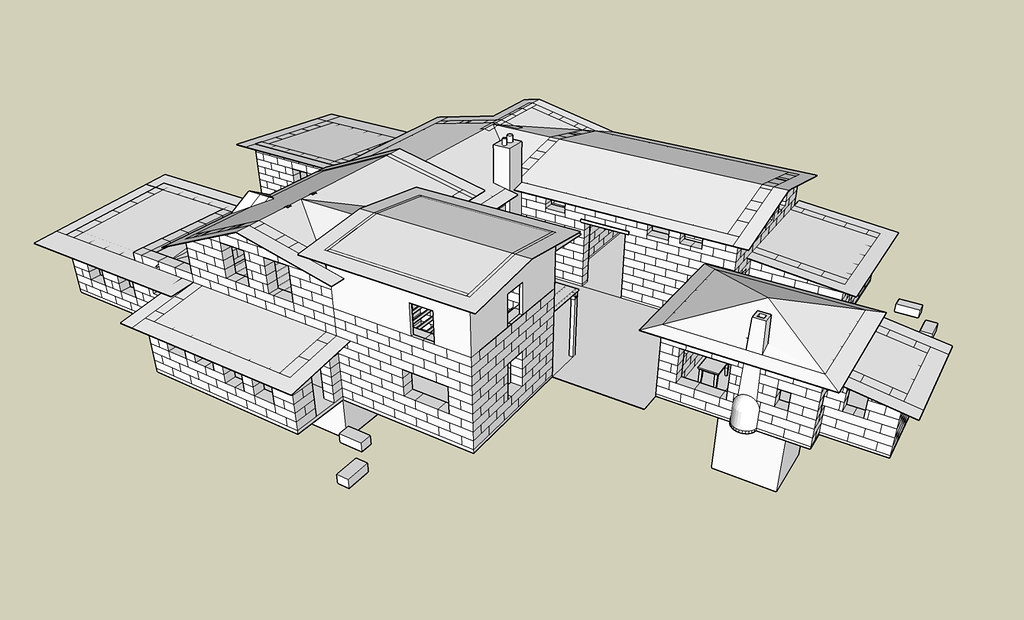

After that I played around with strawbale houses for a couple of months, while working simultaneously on the stories. That led to a couple of drawings, illustrations really, of my second story (it's about anarcho-syndicalist farmers on the moon). Below is my main character's house, with greenhouses and aquaculture units behind it, followed by an overview of the green house complex he runs.

I still haven't gotten it out of my system, but recently, with grad school applications on my mind, I've been drawing up old sculptures I never got around to making, and new ones I'd like to make (if I had $500 worth of plywood and a table saw).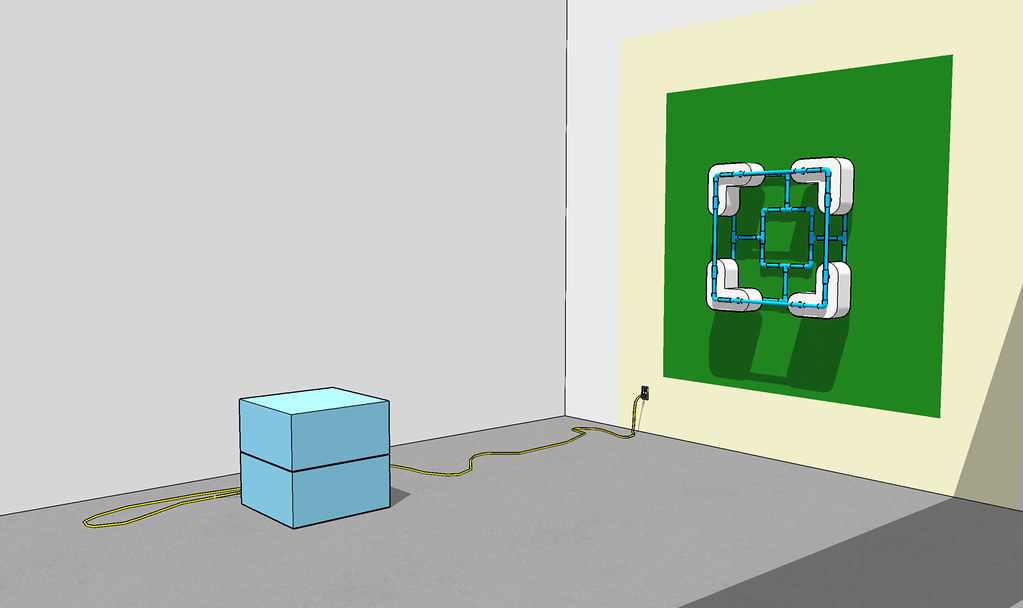
The bisected blue box was started a long time ago, and never finished, we just didn't have enough room in Austin. The thing on the wall made of PVC is a krathong I'd like to make for this year's Loy Krathong. It would be filled with marginal aquatics, and actually clean the water instead of making it dirtier. Below is a x-ray view of the inner workings of the box, followed by several goofy monsters I'd love to make.

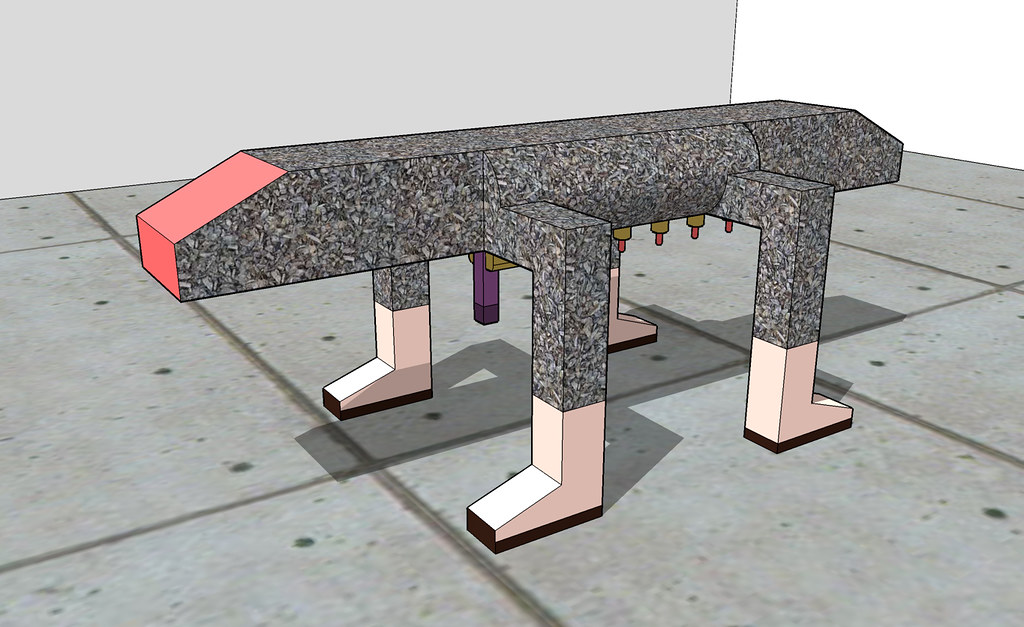
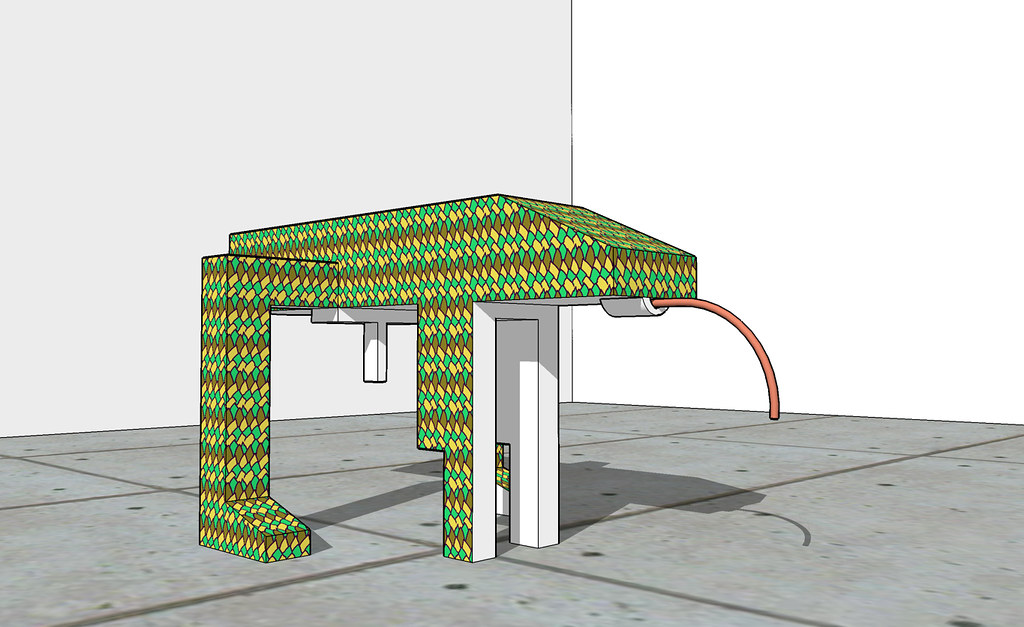
Posted by
Dane
at
12:02 AM
0
comments
![]()
Labels: architecture, art, sculpture
01 October 2007
Pics
Since we've been coming in earlier for work this month I've had time to upload some stuff to Flickr. I've been going through photos from our pre-flickr life and putting them up, so you'll notice that the Italy 2004 set has been growing a little every day. Here's a smattering of random ones just for fun.
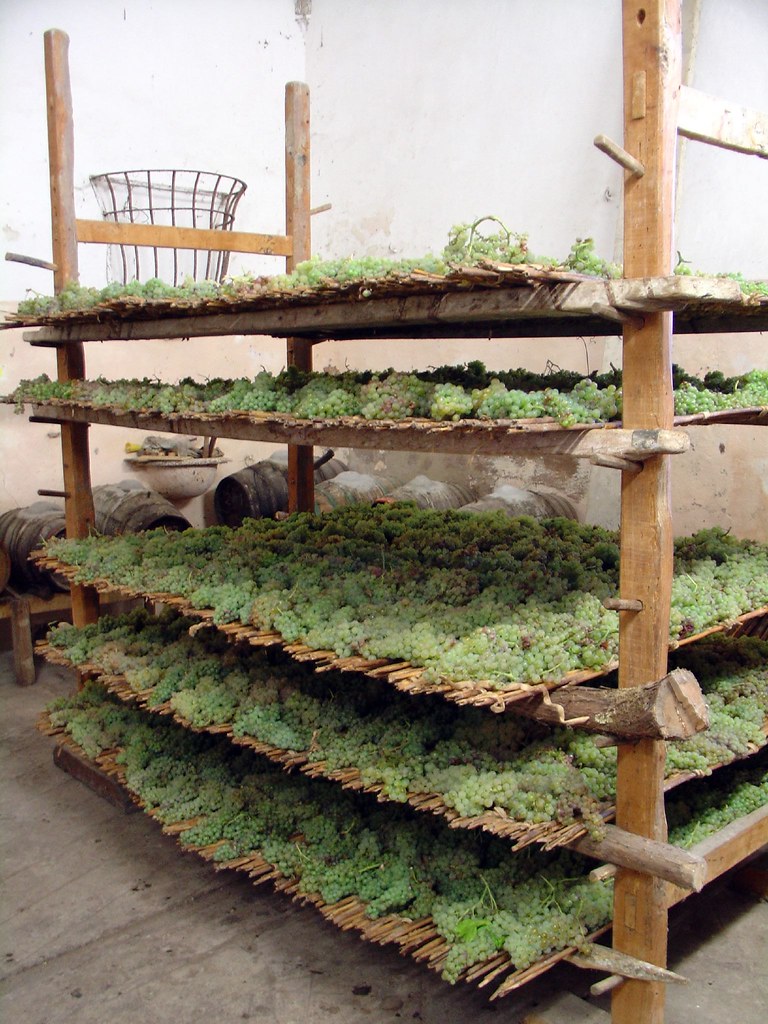


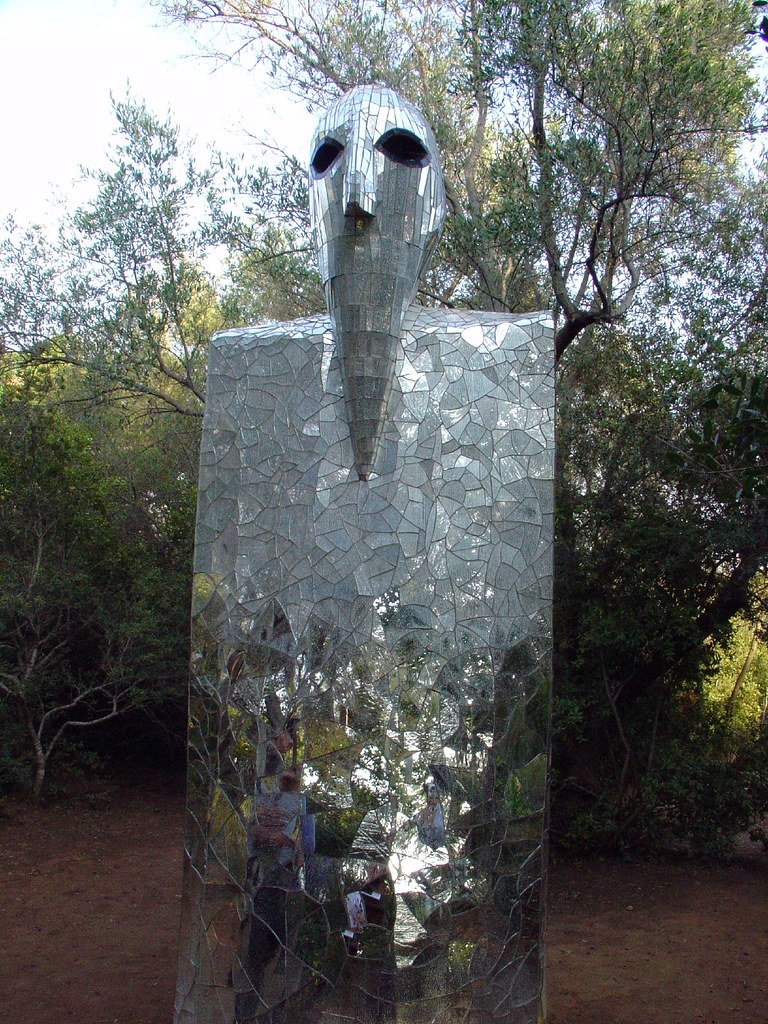
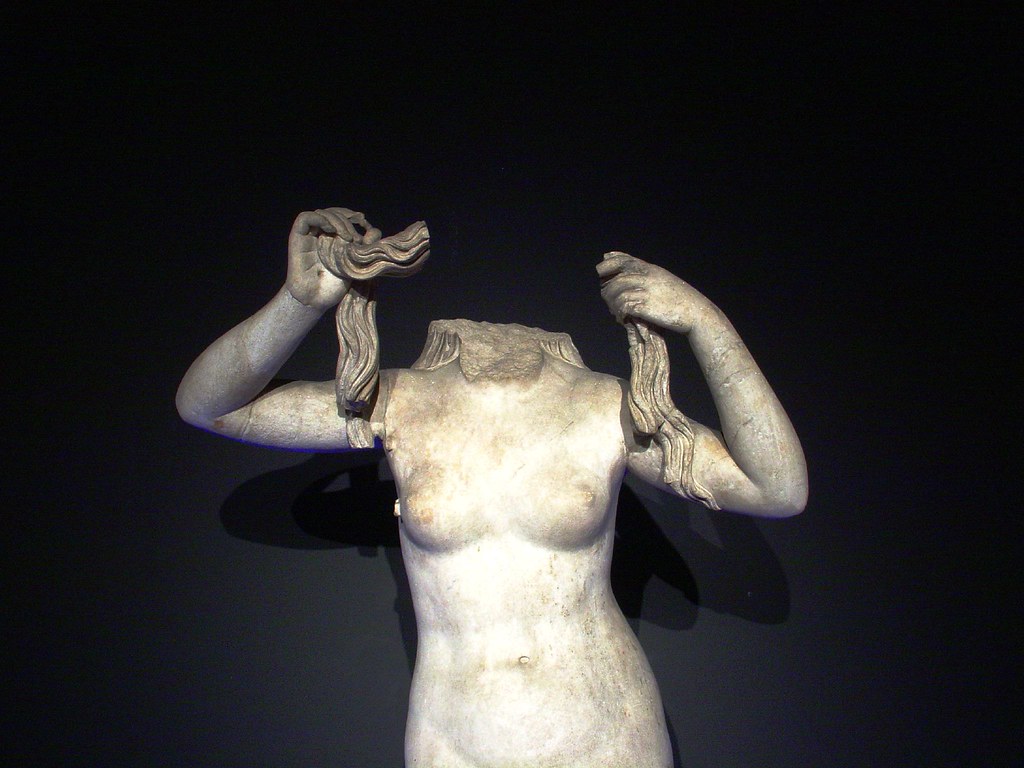
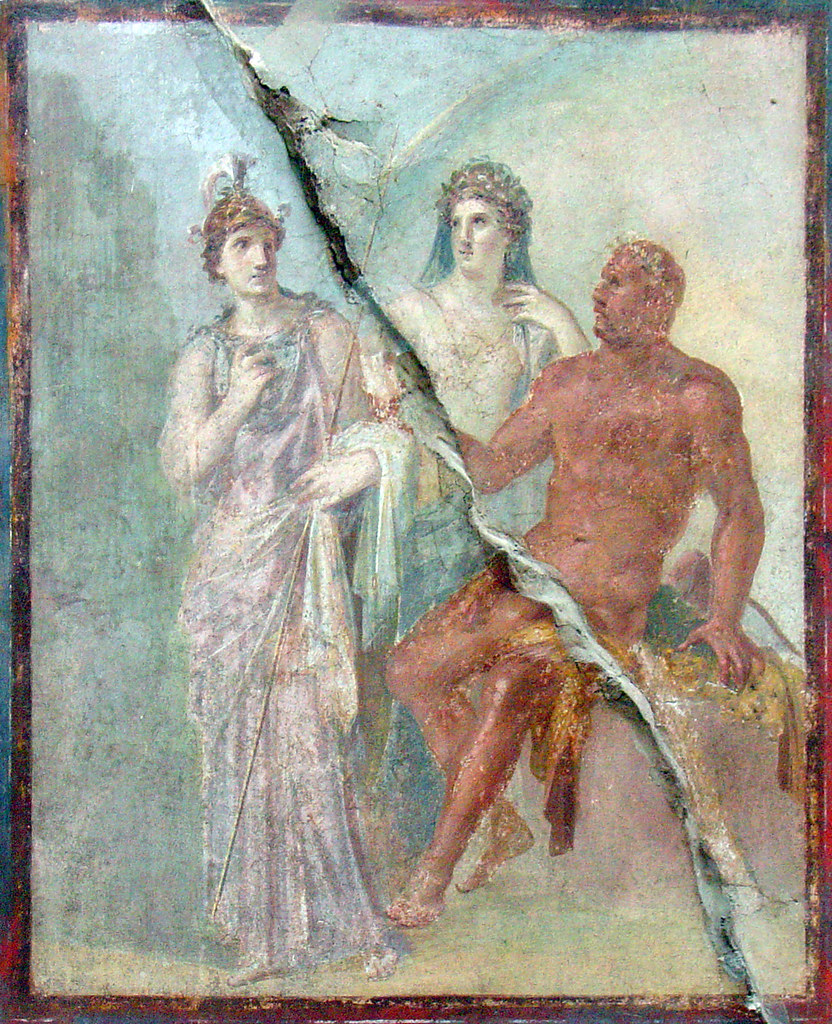
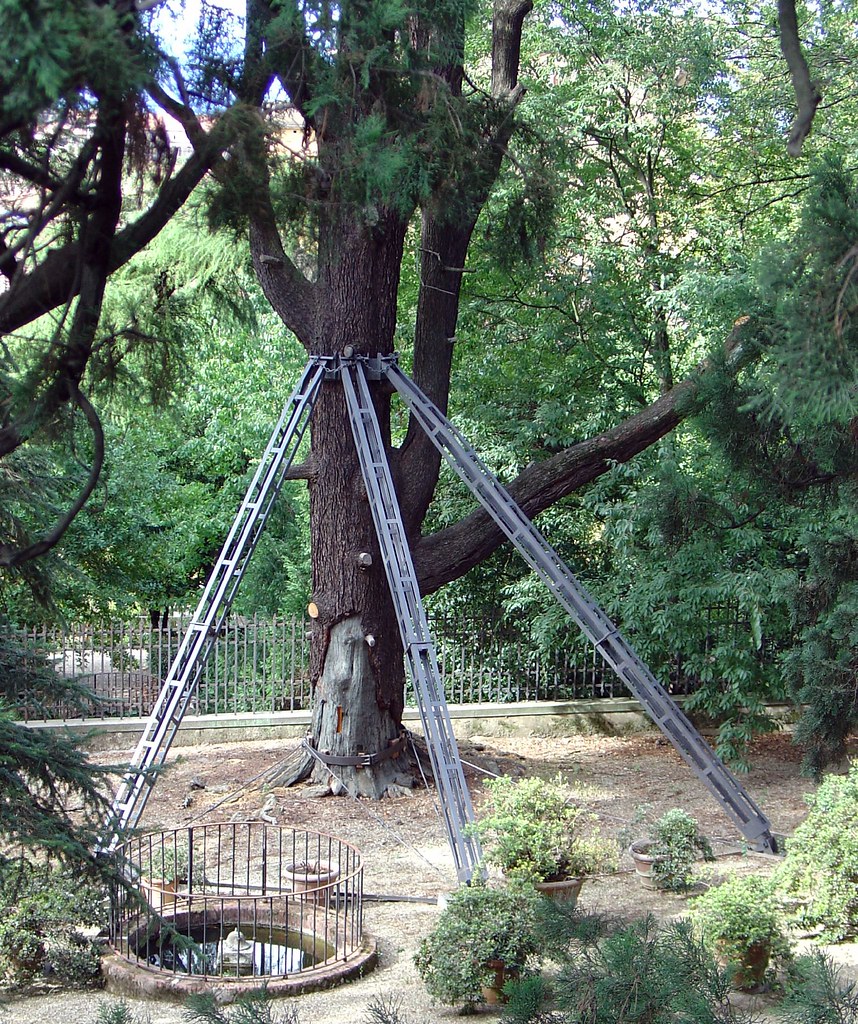


Posted by
Dane
at
11:21 PM
2
comments
![]()

